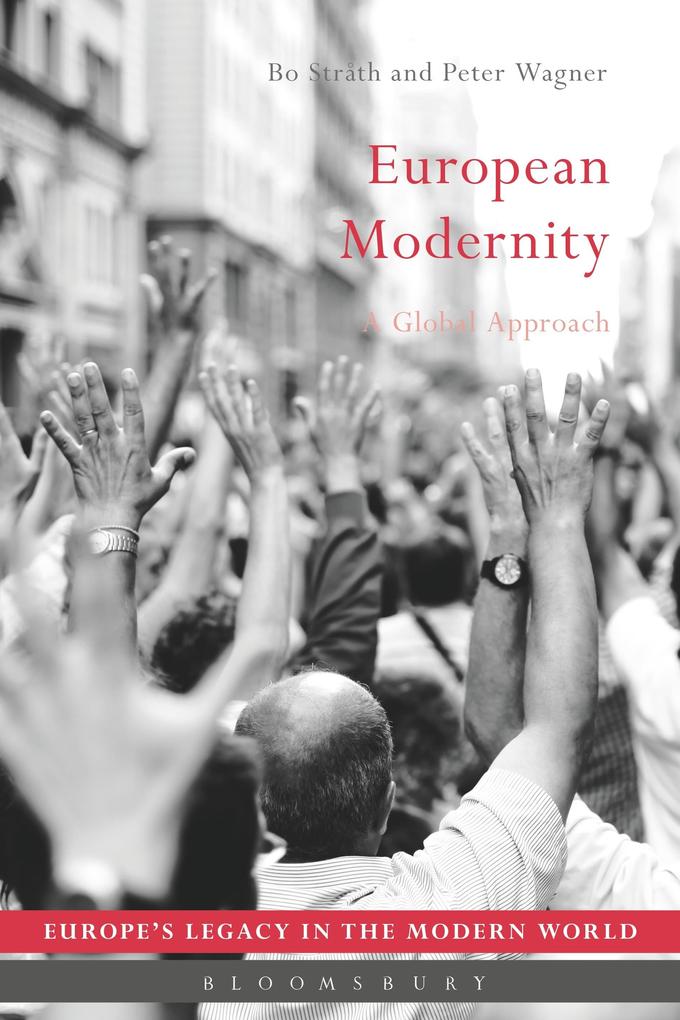
Zustellung: Sa, 26.07. - Mi, 30.07.
Versand in 7 Tagen
VersandkostenfreiBestellen & in Filiale abholen:
It is often taken for granted that modernity emerged in Europe and diffused from there across the world. This book questions that assumption and re-examines the question of European modernity in the light of world history.
Bo Stråth and Peter Wagner re-position Europe in the global context of the 19th and 20th
centuries. They show that Europe is less modern than has been assumed, and modernity less European and thus decentre Europe in a way that makes room for a wider historical perspective. Adopting a thematic structure, the authors reconceive the idea of European modernity in relation to key topics such as democracy, capitalism and market society, individual autonomy, religion and politics.
European Modernity is an important addition to the literature that will be of interest to all students and scholars of modern European history.
Bo Stråth and Peter Wagner re-position Europe in the global context of the 19th and 20th
centuries. They show that Europe is less modern than has been assumed, and modernity less European and thus decentre Europe in a way that makes room for a wider historical perspective. Adopting a thematic structure, the authors reconceive the idea of European modernity in relation to key topics such as democracy, capitalism and market society, individual autonomy, religion and politics.
European Modernity is an important addition to the literature that will be of interest to all students and scholars of modern European history.
Inhaltsverzeichnis
Part I. The Question of European Modernity
1. Introduction: Modernity - Europe - European Modernity
2. What is Europe?
Part II. Key Features of European Modernity Reconsidered
3. Europe's Hesitation with Democracy
4. The Industrial and Market Revolution in Global Perspective: The Colonial Heritage and the
Social Question
5. European Religion: The Christians and the Others
6. The European: Atom - Individual - Person - Subject?
PART III Transformations of European Modernity
7. The Axial Age and Modern Europe
8. The Great Transformation: Organized Modernity for Welfare and Warfare, 1870s - 1960s
9. The New Great Transformation: The Global Challenge of Historical injustice and Movements
for Collective Self-determination: 1960s - The present
Epilogue
Bibliography
Index
1. Introduction: Modernity - Europe - European Modernity
2. What is Europe?
Part II. Key Features of European Modernity Reconsidered
3. Europe's Hesitation with Democracy
4. The Industrial and Market Revolution in Global Perspective: The Colonial Heritage and the
Social Question
5. European Religion: The Christians and the Others
6. The European: Atom - Individual - Person - Subject?
PART III Transformations of European Modernity
7. The Axial Age and Modern Europe
8. The Great Transformation: Organized Modernity for Welfare and Warfare, 1870s - 1960s
9. The New Great Transformation: The Global Challenge of Historical injustice and Movements
for Collective Self-determination: 1960s - The present
Epilogue
Bibliography
Index
Produktdetails
Erscheinungsdatum
27. Juli 2017
Sprache
englisch
Seitenanzahl
260
Autor/Autorin
Peter Wagner, Bo Stråth
Verlag/Hersteller
Produktart
gebunden
Gewicht
558 g
Größe (L/B/H)
240/161/19 mm
ISBN
9781350007079
Entdecken Sie mehr
Bewertungen
0 Bewertungen
Es wurden noch keine Bewertungen abgegeben. Schreiben Sie die erste Bewertung zu "European Modernity" und helfen Sie damit anderen bei der Kaufentscheidung.









